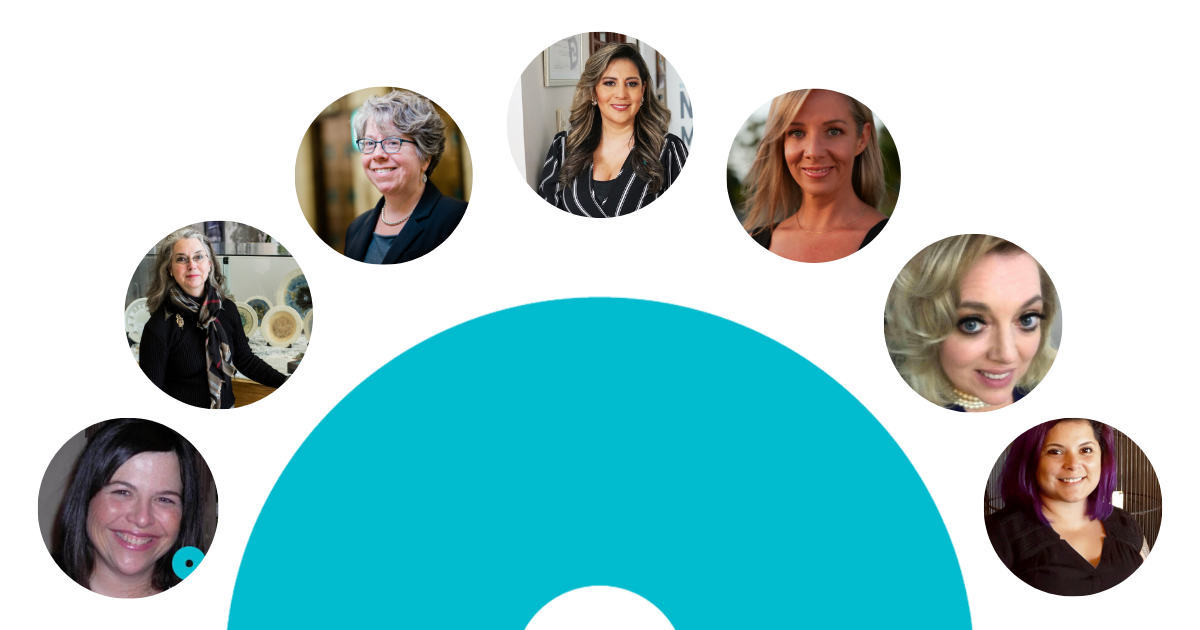The Women of NO MORE

“There is no room for excuses. There is no room for hate. There is no room for violence. There is no room for rape. We are just one voice of millions that support our dream—a world without violence.”
– Michelle Bart, Washington Says NO MORE
For women, the world that we live in today is much different than 40 years ago. If you are a victim of domestic violence currently, you are likely to find a shelter, support services, healthcare, workplace help, and legal support. This progress was achieved by women who imagined a better world—a more equal world—who challenged their realities to create safer spaces for themselves and their families. Despite the advances, the fight for equality continues. Thankfully, we have many more brave women who continue to create progress, to change communities, and to change hearts and minds. This International Women’s Day, we thank and celebrate them.
In 2013, NO MORE was co-founded by Anne Glauber and Jane Randel. They both understood that as a society we were not having enough critical conversations about domestic violence and sexual assault. Both wanted to find a way to unite passionate people in their efforts to end violence. They believed that by engaging bystanders to take action—in particular men and youth—violence could be stopped before it starts. In their view, prevention was key to create the culture change needed to end gender-based violence. Fundamentally, they saw this through the prism of human rights.
From that vision, NO MORE grew to become the largest and most successful domestic violence and sexual assault awareness and engagement initiative in history—with more than 1,400 organizations joining our allies network and over 300 high schools and colleges adopting the NO MORE symbol. The symbol itself was created by another visionary and strong woman, Christine Mau.
This revolution also sparked the creation of more than 40 state, local and international NO MORE chapters. Women and men came together to prevent gender-based violence in their communities. Today, we honor just some of the incredible leaders who are determined to unite their communities in saying NO MORE to domestic violence and sexual assault:
Paola Andrade and her husband Ricardo Vélez, founders of Ecuador Dice NO MÁS and sexual assault survivors, have used media and video campaigns to break the veil of secrecy and silence around child sexual abuse in Ecuador. As a result, changes in the law have occurred in Ecuador and direct service provisions have been created for victims.
Kirsty Trautman of Southwest Pennsylvania Says NO MORE understood the role that employers can play in supporting domestic violence victims in the workplace and, through corporate engagement, is encouraging companies to adopt policies and training to address partner violence as a workplace and workforce issue. Kristie Paskvan and Chicago Says NO MORE created an innovative that trains salon professionals in Chicago to recognize the signs of domestic and sexual violence in their clients. This training is now a mandatory requirement for Illinois cosmetology license renewal.
Each of our chapters, corporate partners, volunteers, global campaigns, and supporters are creating change and inspiring hope for millions of people around the world.
Not letting the scale of the task deter her, Claire Miller, a domestic violence survivor, founded Australia Says NO MORE. Her vision led to the creation of successful media campaigns that have reached and affected an entire continent. The UK Says NO MORE campaign, led by Lyndsey Dearlove, has gained the endorsement of dozens of parliamentarians, positioning it as the strongest prevention effort in the country.
Memphis says NO MORE, led by Deborah Clubb, works in schools, seminaries, and workplaces and annually hosts a ‘Walk a Mile in My Shoes’ event—in solidarity with survivors of domestic violence and their families. Michelle Bart and Washington says NO MORE host the largest biannual NO MORE conference—the NO MORE Summit—inspiring many to take action and share knowledge about domestic and sexual violence prevention.
The leaders of Casa de Esperanza had the vision to create a NO MORE sister campaign focused on the Latin@ community—NO MÁS. This dynamic program is dedicated to helping parents have tough conversations about sexuality, relationships, and boundaries with their children.
Each of our chapters, corporate partners, volunteers, global campaigns, and supporters are creating change and inspiring hope for millions of people around the world. Each action that we take is in service of every woman and girl who has experienced the isolation and trauma of abuse.
From all of us at NO MORE, thank you to all of the people in our chapters, allied organizations, board, and staff. Thank you to every woman that works around the world to ensure that one day, we can see the end of domestic violence and sexual assault.
Join us on this International Women’s Day—and every day—in helping to make the dream of a world without violence a reality.
#ChangeHappensHere
Together We Can End Domestic and Sexual Violence






